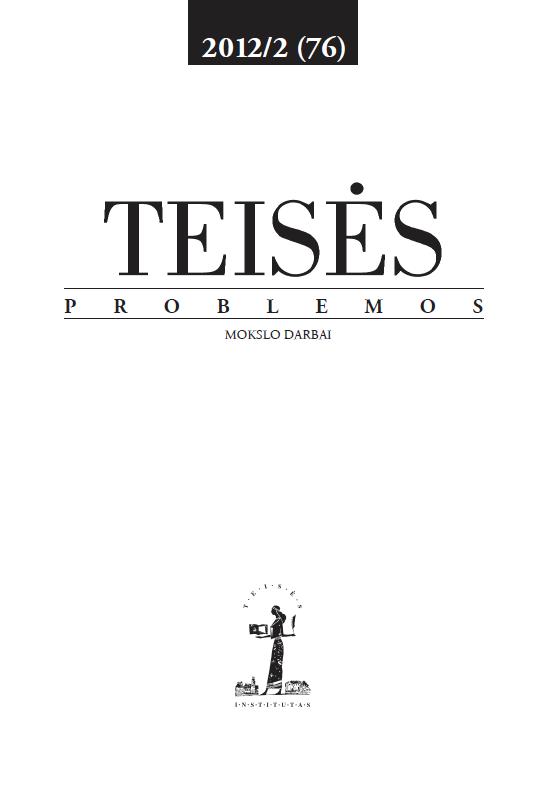Komercinės paskirties nekilnojamojo turto nuomos sandoriai Lietuvos koncentracijų kontrolės sistemoje
Real Estate Lease Transactions in the Frameworkof the Lithuanian Merger Control System
Author(s): Lauras Butkevičius, Mindaugas CivilkaSubject(s): Law, Constitution, Jurisprudence, Civil Law
Published by: Lietuvos teisės institutas
Summary/Abstract: This article discusses conceptual as well as practical questions pertaining to qualification of commercial real estate lease transactions in the framework of merger (concentration) control system. The topic was mainly inspired by two mounting concerns over the long-lasting practice as well as the stance tacitly reserved by the Lithuanian Competition Council. The first concern is that the said uncontested administrative practice may undermine the legal certainty and predictability, i.e. those principal virtues, which are guiding over the merger control system and its overall functionality as a whole, and over the relatively routine transactions, such as commercial real estate leases, in particular. The second concern is that the said practice may compromise the legal diligence, accuracy and purity, when accepting and domestically applying certain fundamental concepts of EU competition law in Lithuania. In the first chapter of the article basic concepts pertaining to qualification of commercial real estate lease transactions in the framework of merger control system are analysed, such analysis leading to principal conclusions as to the particular location of the said transactions within the domestic legal system of merger control. The second chapter displays the principal characteristics of the resilient practice, which has been tacitly accepted by Lithuanian Competition Council when qualifying commercial real estate lease transactions under the merger control regime. Such analysis enables to identify the problems of legal interpretation and application as well as to articulate certain proposals, which could initiate general improvements to the current administrative practice of Lithuanian Competition Council in the field of merger control. Thus, on the basis of specific analysis conducted over the commercial real estate lease transactions, all-embracing and comprehensive recommendations for positive advancement of the whole domestic merger (concentration) control framework may be extrapolated. The third chapter concentrates on the exhaustive and complex conceptual examination of the problems, identified in the second chapter of the essay. On the footing of such all-embracing study, the “three-layer analysis” rule is synthesised and further developed. The main objective of such analysis is to factualise the concept of concentration, which is inherently intended to relate to operations which bring about a lasting change in the structure of the market. Thus, it is demonstrated, how the “three-layer analysis” may contribute to proper qualification of commercial real estate lease transactions in the framework of merger control in Lithuania: first, identification of particular undertaking shall be performed; the acquisition of control over assets can only be considered a concentration if those assets constitute the whole or a part of an undertaking; as a second step, it should be assessed, to which extent the business acquired may enable independent exercise of economic activities; as a final step, it should be evaluated, to which extent the business acquired may be linked (actually or potentially) to a market presence, to which a market turnover can be clearly attributed. Namely this “three-prone“ rule paves down sufficient grounds for systematic analysis of the questions posed by virtue of this study.
Journal: Teisės problemos
- Issue Year: 2012
- Issue No: 76 (2)
- Page Range: 5-67
- Page Count: 63
- Language: Lithuanian

